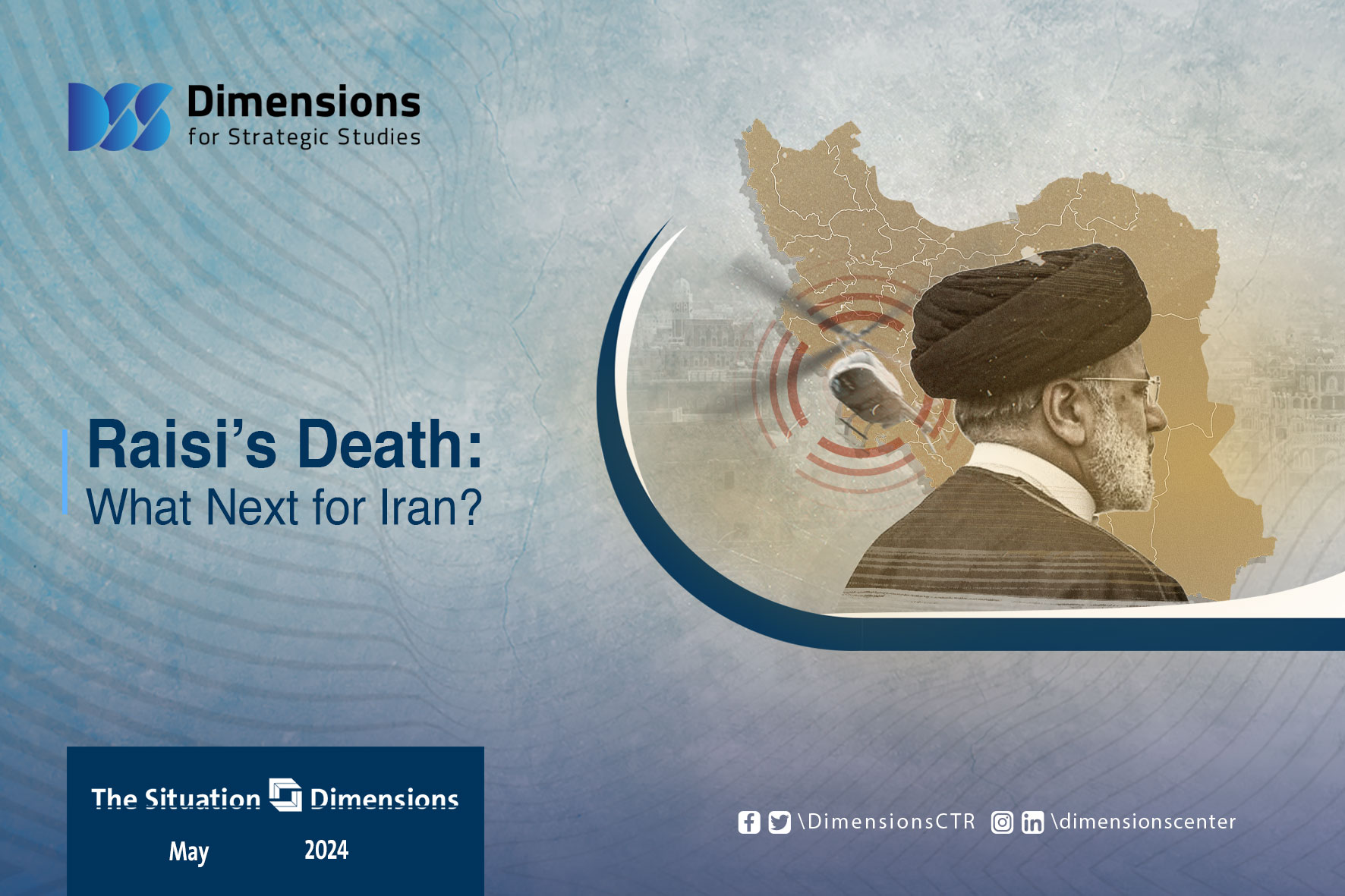
Raisi’s Death: What Next for Iran?
2024-05-222225 view
On May 19, a helicopter carrying Iranian President Ebrahim Raisi, Foreign Minister Hossein Amirabdollahian, and several other officials crashed near the border with Azerbaijan, killing them all.
Iran’s Supreme Leader Ali Khamenei immediately appointed Raisi’s deputy Mohammad Mokhber as acting president, in accordance with the Iranian constitution, while Ali Bagheri Kani was appointed acting Minister of Foreign Affairs.
The situation obliges the Speaker of the Iranian parliament, Mohammad Bagher Ghalibaf, along with Mokhber and the head of the country’s judiciary Gholam-Hossein Mohseni-Eje’i, to organize presidential elections within 50 days. Both Mokhber and Mohseni-Eje’i have been under US sanctions since January 2021, for their roles in managing and financing Iran’s Basij paramilitary force.
The helicopter crash sparked speculation over the possibility that Raisi and his team had been assassinated, and who could have been responsible—Israel, with which Iran engaged in a direct military clash for the first time in April 2024, the United States, or a faction within Iran that wished to see Raisi removed. While these possibilities bear some logic, it would be nearly impossible to prove any one of them, given the dearth of evidence. It should be noted that Iran has a chronically poor air safety record, exacerbated by a lack of spare parts for its ageing fleet due to US sanctions. Thus, another key question is why the helicopter took off at all, despite the dangerously bad weather conditions along its route.
Repercussions at Home
Raisi’s death has potentially enormous domestic implications for Iran. He had been seen as the favored candidate to succeed the Khamenei, who is in his mid-80s, as the Islamic Republic’s Supreme Leader. Raisi’s ascension to the presidency and his long, close relationship with Khamenei had made him—alongside Mojtaba Khamenei, the Supreme Leader’s son—a favored candidate of the Assembly of Experts, the council constitutionally responsible for monitoring the Supreme Leader and choosing his successor.
Even though Raisi was President of the Republic, voters in South Khorasan Province had also elected him as their representative on the Assembly in March 2024. He is believed to have been preparing for re-election as president in 2025.
Prior to his death, Raisi had played a key role in consolidating Iran’s security apparatus and judiciary. He was in the Islamic republic’s more radical camp, and responded to any demands for reform with rejection and scorn.
The regime will have little problem finding a replacement for Raisi from its radical wing. The main problem his death poses to the regime is the short timeframe in which the presidential election must be held. The competition is likely to be limited to candidates from the radical camp, as the reformists have largely been sidelined.
While Raisi’s death will have real effects both domestically and externally, Iran is unlikely to witness a tumultuous transfer of power or political and social instability, especially with Khamenei at the helm. The Supreme Leader, who was president for eight years, also has the experience of having witnessed up close how the regime dealt with President Mohammad Ali Rajai’s assassination, along with his prime minister, in a suitcase bomb explosion at his office in Tehran in 1981.
That said, the Iranian government, parliament, and Assembly of Experts are all set to see major changes. It is possible that Ghalibaf, the current Speaker of Parliament, will run for president, which could lead to a new power struggle among various blocs in the legislature.
Whoever becomes the next president will also form a new team different to that of Raisi, which could mean a change of course for government policy. This could lead to further domestic crises. Many in parliament had been increasingly critical of Raisi of late for failing to solve Iran’s economic problems, as inflation has spiraled and the currency’s decline accelerated. Voters have also showed an increasing sense of alienation from their politicians, as demonstrated in the recent parliamentary and presidential elections, which saw the lowest turnout in the history of the republic.
External Implications
So what does Raisi’s death mean for Iran’s external policies? The regime is likely to be bogged down in its domestic crises for the time being, forcing it to rein in its provocative actions towards the US and Israel. On the other hand, it is unlikely to move towards a softer or more moderate regional policy. The final decision in Iran’s strategic and foreign policy affairs lies with the Supreme Leader, greatly restricting the influence of the Iranian president and his team on this file.
Moreover, it is difficult to speculate on the foreign policy outlook of the new Iranian government before knowing the latter’s composition. That said, the administration is likely to continue with the policies followed under Raisi, whose administration had stepped up military cooperation with Russia and China, failed to revive the nuclear agreement with the US, and engaged in a carefully calibrated but direct clash with Israel following the latter’s assassination of a number of senior Iranian leaders in Syria.





